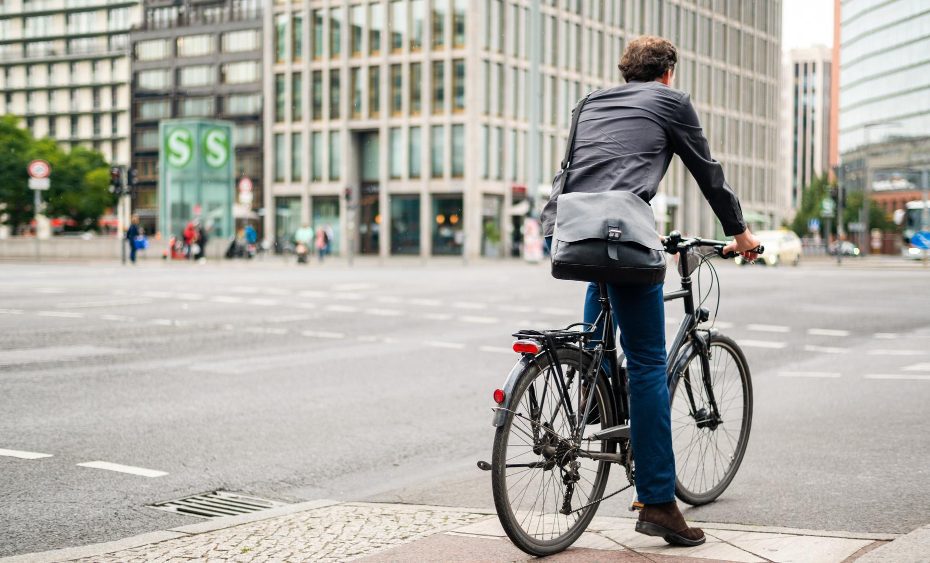Why are cyclists the happiest commuters?
Introduction
Cycling has become an increasingly popular mode of transportation in recent years. Not only does it offer a sustainable and affordable way to get around, but it also boasts numerous health and well-being benefits. It is no wonder that cyclists are often regarded as the happiest commuters on the roads. This article will delve into the reasons why cyclists experience such joy during their daily commutes.
Physical Health Benefits
One of the main factors contributing to the happiness of cyclists is the physical health benefits associated with regular cycling. Studies have shown that cycling regularly can improve cardiovascular fitness, strengthen muscles, and enhance overall stamina. The release of endorphins during exercise also promotes a positive mental state. As a result, cyclists often arrive at their destinations feeling energized, rejuvenated, and ready to take on the day.
Mental Well-being
In addition to the physical health benefits, cycling has a profound impact on mental well-being. Commuting by bike allows individuals to disconnect from the stresses of daily life and immerse themselves in the present moment. The fresh air, scenic routes, and the freedom to determine their own pace can be incredibly calming and soothing. Furthermore, physical activity stimulates the brain and reduces anxiety and stress levels. As a result, cyclists often experience improved mental clarity and a sense of overall happiness.
“Cycling is the closest thing to flying that we have on this planet. It offers a sense of freedom and liberation.” – John F. Kennedy
Social Connections
Cycling provides ample opportunities for social interactions and the formation of new connections. Many cities have cycling communities or clubs where like-minded individuals gather for group rides. These group activities not only foster a sense of camaraderie but also provide a platform for cyclists to share their experiences, knowledge, and tips. Whether it’s a friendly chat at a traffic light or joining a cycling event, the social aspect of cycling adds to the overall happiness experienced by cyclists.
Eco-Conscious Commuting
Choosing to commute by bike demonstrates a commitment to sustainable living and reducing carbon emissions. Cyclists often take pride in their eco-conscious choices, knowing that they are actively contributing to a cleaner environment. This sense of purpose and involvement in making a positive impact on the planet adds to their overall happiness and satisfaction with their commuting experience.
Efficiency and Cost-Effectiveness
Compared to other modes of transportation, cycling offers a cost-effective and efficient means of commuting. Cyclists avoid the frustration of being stuck in traffic congestion and the expense of fuel and parking. Moreover, bicycles do not require significant maintenance, making them a more affordable option in the long run. The time saved by avoiding traffic and the money saved on transportation costs contribute to the overall happiness of cyclists.
In Conclusion
Cyclists are widely regarded as the happiest commuters for numerous reasons. The physical health benefits, mental well-being, social connections, commitment to sustainability, and cost-effectiveness are all factors that contribute to their joy. By choosing to commute by bike, cyclists not only improve their own well-being but also positively impact the environment and build strong connections within their communities. So, if you’re looking for a way to enhance your daily commute, perhaps it’s time to dust off that bicycle and experience the sheer happiness of being a cyclist on the road.
How long is too long of a bike commute?
When it comes to commuting by bicycle, the distance you have to cover can make a big difference in your overall happiness as a cyclist. While there isn’t a set answer to how long is too long for a bike commute, there are several factors to consider.
1. Physical endurance
One of the main factors to consider is your physical endurance. If you’re not used to cycling long distances, starting with a lengthy commute may be challenging. It’s important to gradually build up your stamina and fitness level before taking on longer distances.
2. Time commitment
Another factor to consider is the time commitment required for a longer bike commute. Cycling takes more time compared to driving or using public transport, especially over longer distances. Evaluate if you have enough time each day to dedicate to your commute and if it aligns with your other responsibilities.
3. Safety considerations
Safety is a crucial aspect of any bike commute, especially when covering longer distances. Consider the routes available to you, the traffic conditions, and the infrastructure in place for cyclists. If the potential route for your longer commute lacks safe cycling paths, it might not be the best choice.
4. Personal preferences
Ultimately, the decision of how long is too long for a bike commute comes down to personal preferences. Some cyclists enjoy the challenge of longer distances and consider it a great way to stay fit, while others prefer shorter, more manageable commutes. Consider what works best for you and what brings you joy as a cyclist.
“The joy of cycling is not only in the destination but also in the journey itself.”
Here’s a quick comparison table to help you determine the pros and cons of different bike commute distances:
| Distance | Pros | Cons |
|---|---|---|
| Short (1-5 miles) | – Quicker commute – Less physical exertion – Suitable for beginner cyclists |
– Limited exercise benefits – Potential for traffic congestion |
| Medium (5-10 miles) | – Moderate physical exertion – Balanced time commitment – Increased health benefits |
– Longer time commitment compared to shorter commutes |
| Long (>10 miles) | – Significant health and fitness benefits – Sense of accomplishment – Quiet time for self-reflection |
– Longer time commitment – Requires higher endurance levels |
Remember, there is no “one size fits all” answer to how long is too long for a bike commute. It’s important to consider your own capabilities, preferences, and the practicality of the distance in relation to your daily routine. Whether it’s a short jaunt or a lengthy ride, the key is to enjoy the journey and embrace the benefits of cycling.



